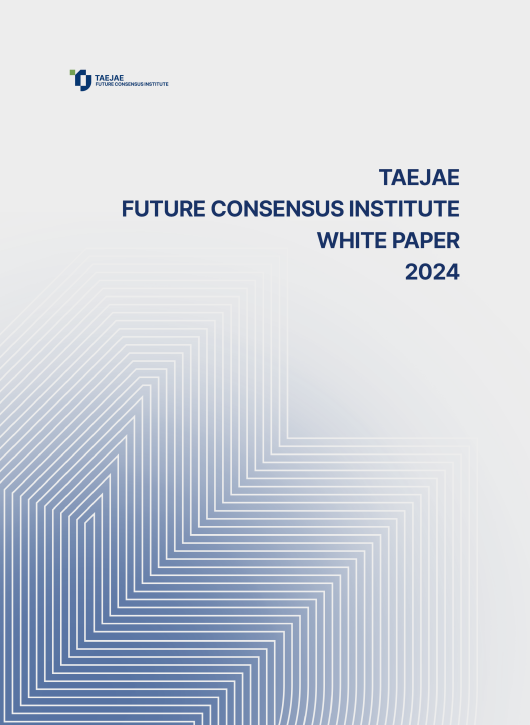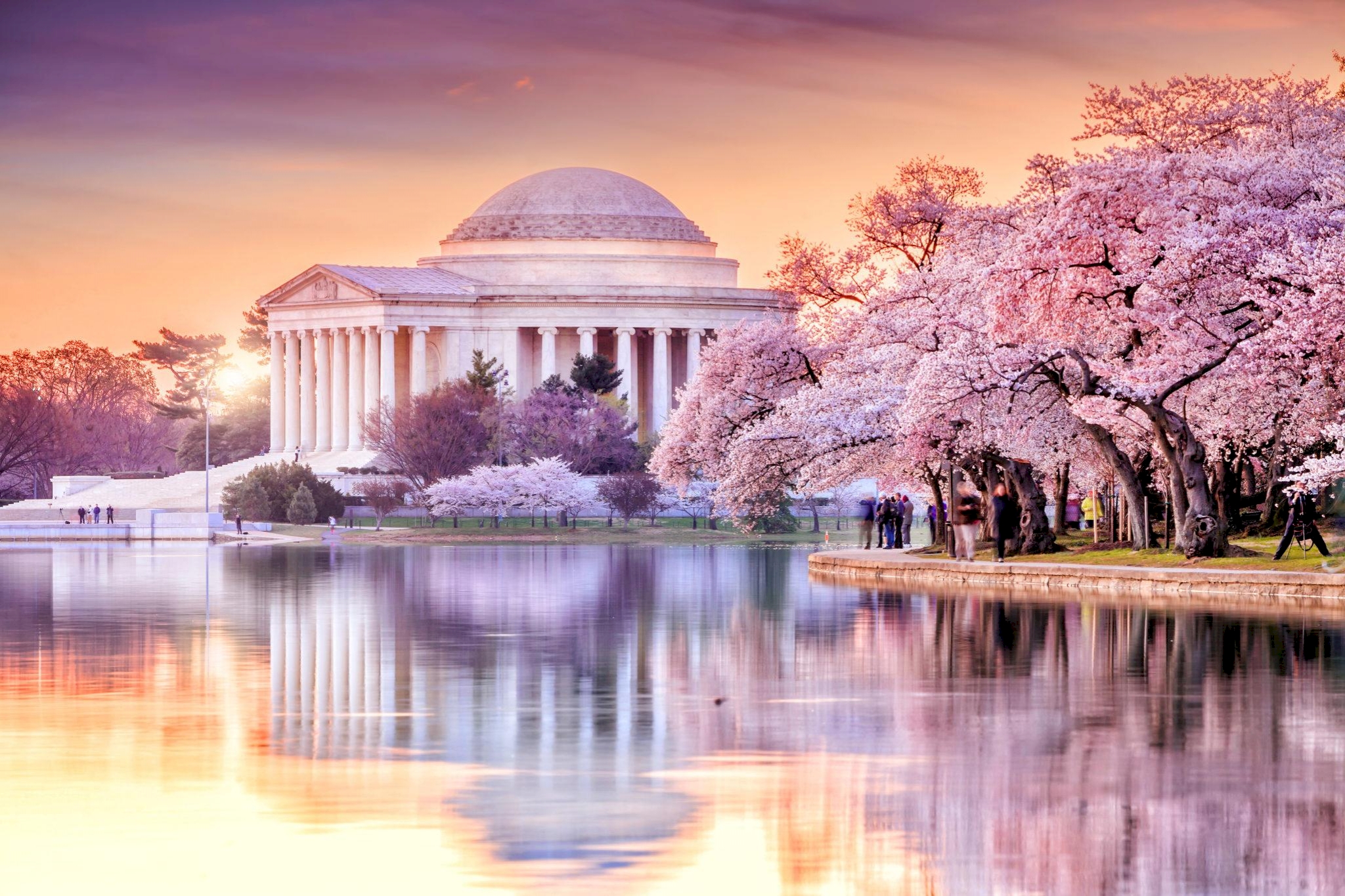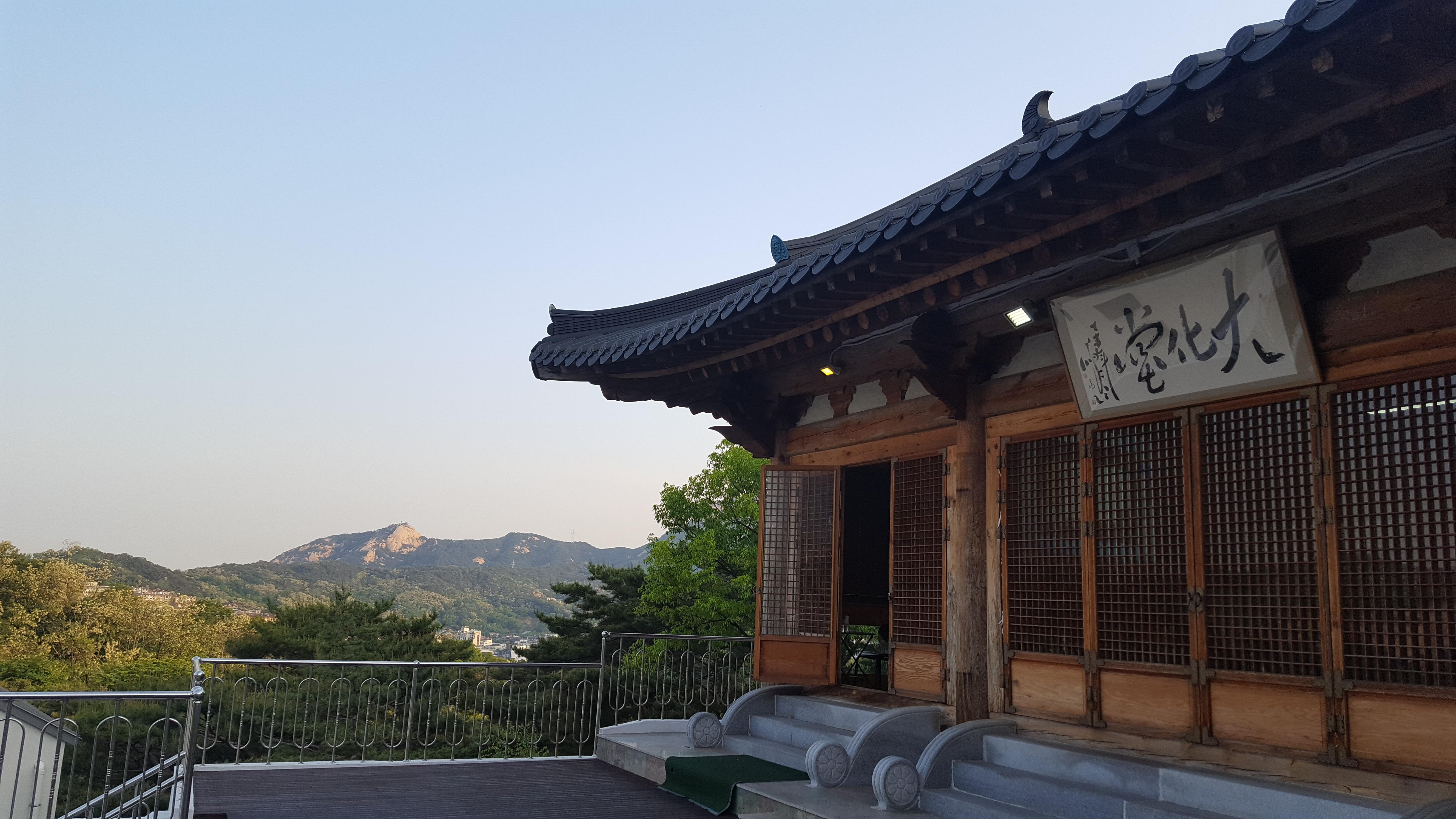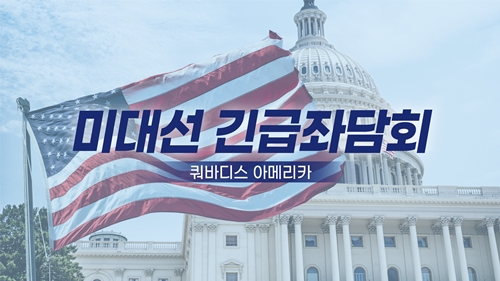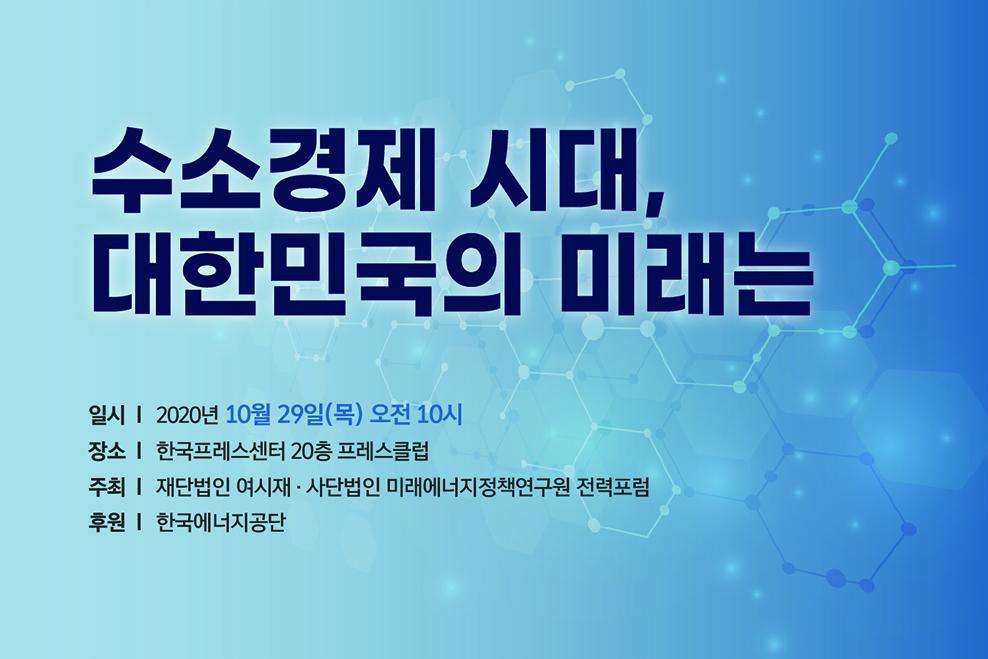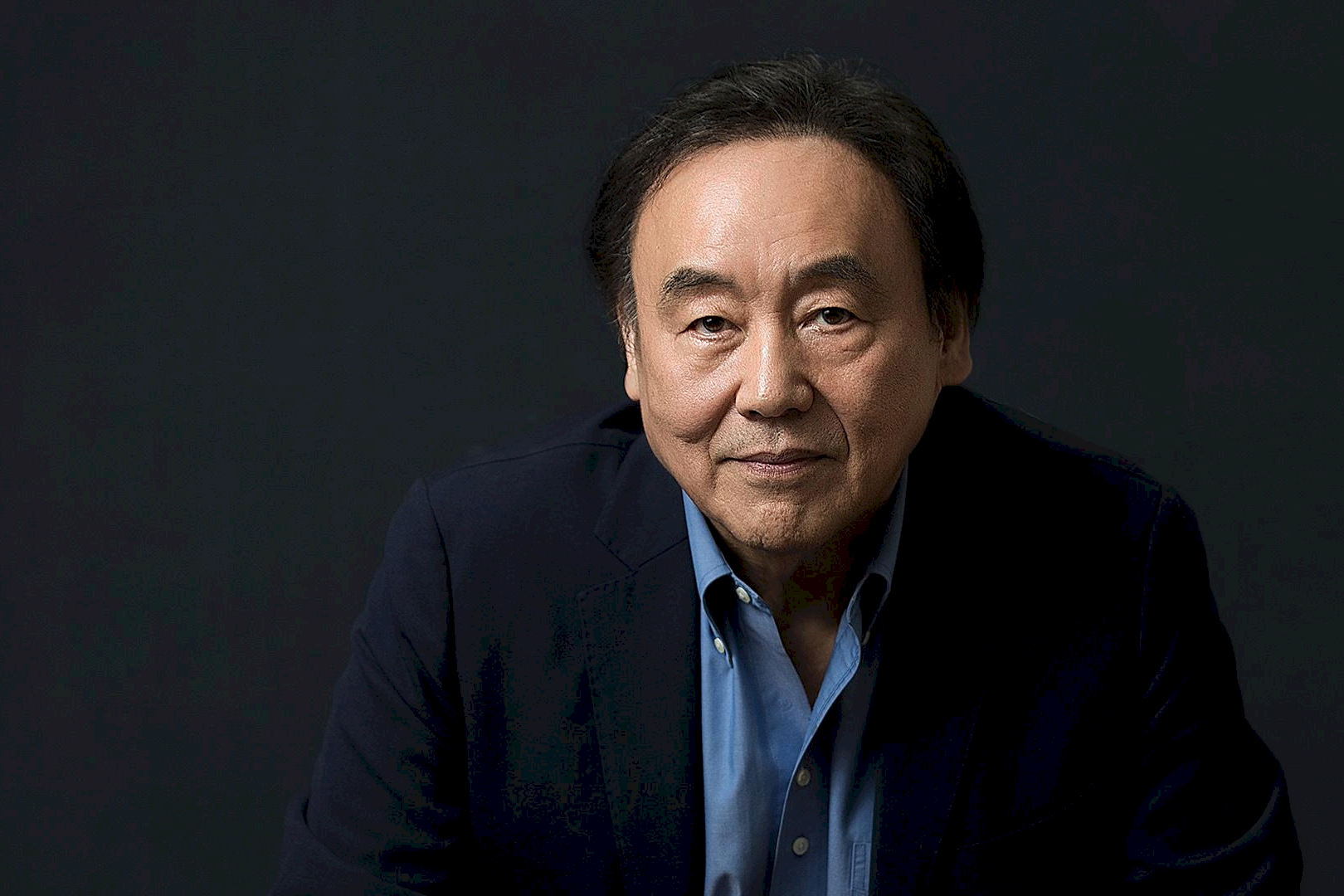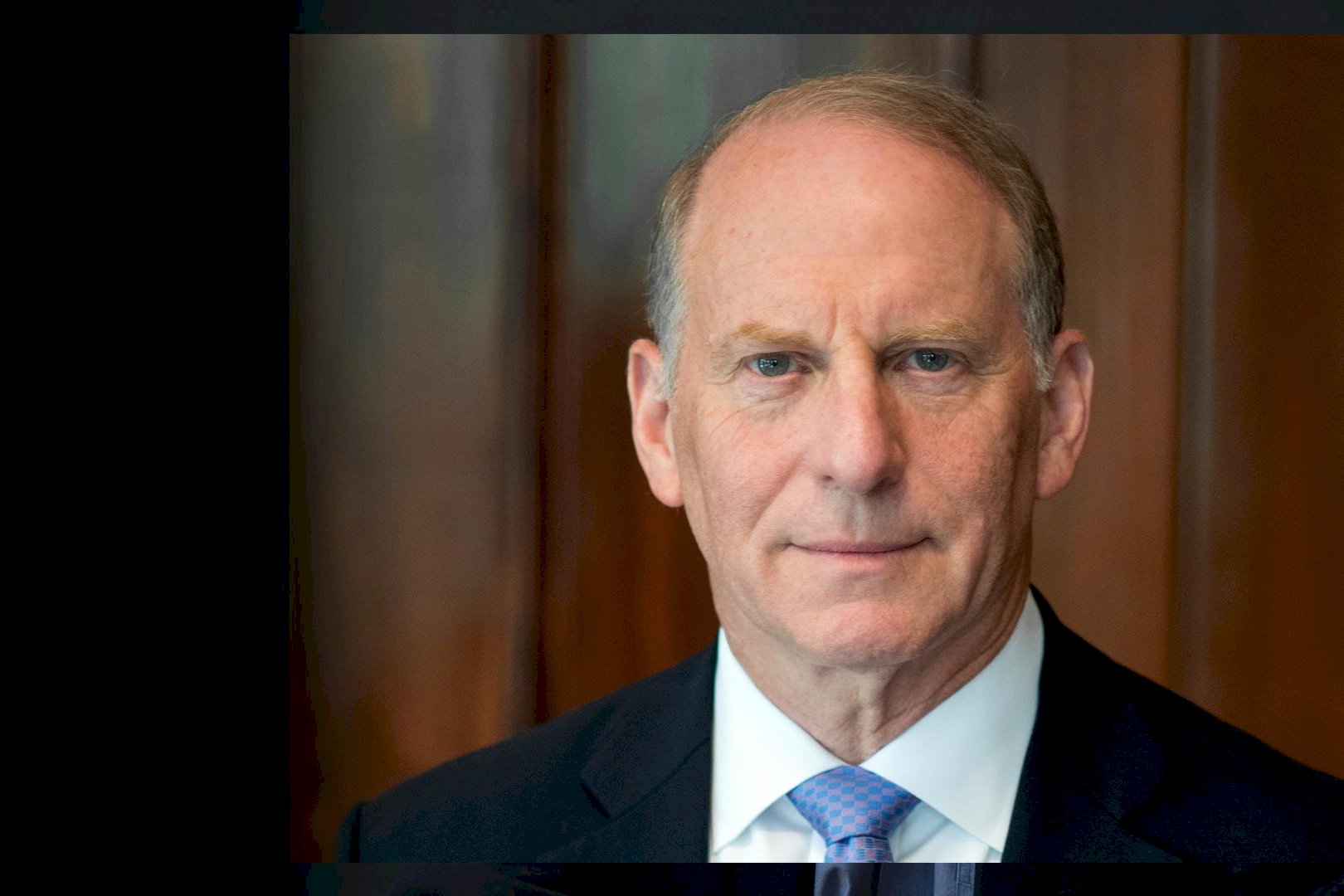Please join Yeosijae as we build a brighter future for Korea. Create your account to participate various events organized by Yeosijae.
[Outlook 2021 ① / SSDP Chairman Masahiro Akiyama] “Pragmatic PM Suga will pursue realistic goals…” International cooperation and Japan’s foreign policy in 2021
- Middle power cooperation is becoming increasingly important amid the U.S.-China conflict
- Countries should seek international cooperation to urge China to comply with international rules and norms
The morning has broken, and a new year has begun. Though the coronavirus disrupted the international order last year, we have yet to establish a new global order. And the unprecedented, dynamic times of COVID-19 require us to be more vigilant and more analytical than ever. Against this backdrop, the Future Consensus Institute (Yeosijae) spoke with Korean, American, Chinese, and Japanese scholars to understand the challenges surrounding the Korean Peninsula and predict the future ahead of us.
Here, we share our interview with Chairman Masahiro Akiyama of Japan’s Society of Security and Diplomatic Policy Studies (SSDP) as the first part of our Outlook 2021 series. During the interview, Mr. Akiyama highlighted the potential of South Korea-Japan “middle power cooperation” and stressed the importance of continued dialogue and exchange for the South Korea-Japan relations.
SSDP Chairman Masahiro Akiyama is a former Vice Defense Minister and a security expert. He was the Japanese representative for the 1990s revision of the U.S.-Japan Cooperation Guidelines, which became the foundation of the U.S.-Japan alliance. After finishing his term as the Vice-Minister of Defense, Mr. Akiyama became the President of the Tokyo Foundation and has been an active figure in Japan for public diplomacy and policy. He is currently a Distinguished Fellow at Yeosijae, providing insights on South Korea-Japan cooperation and Northeast Asia cooperation.
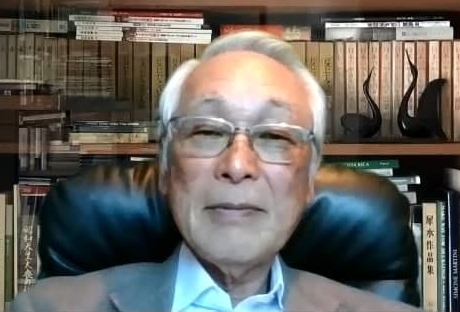
American democracy and world leadership in crisis;
The Biden administration will seek a way out of the situation
Q. Many experts predict that the Biden administration will turn the page on the “aberration” of Trump’s foreign policy and return America to a “normal” foreign policy. What are your thoughts on this?
A. First, we have to examine the crisis that the U.S. is currently going through. The American crisis originated from the concerns about democracy—a fear that is increasingly shared globally. When the democracy of an ally state is in danger, Japan is at risk as well. Since the President-elect has promised to restore democracy in America, I expect the U.S. to start addressing its issues. Biden’s victory and his inauguration are ultimately proof that America’s democracy is still functioning. In fact, I think we were able to see the strengths of democracy through the recent U.S. presidential elections.
Second, President-elect Joe Biden has made it clear through a piece on American leadership in Foreign Affairs in May 2020 that he plans to restore American leadership in the world. Leadership requires “purpose” and “ability.” Throughout history, there have been doubts about America’s leadership abilities, but the Trump administration’s “America First” policy has sowed doubts about America’s sense of purpose as well. I believe the Biden administration understands this growing perception, and that this is why they have decided to emphasize American leadership. Consequently, I believe Biden will find a solution to America’s two crises—democracy and world leadership crises—and address our concerns.
Building stronger ties with democracies...
Great changes ahead for U.S.-E.U. relations
Q. Unilateralism and “America First” dominated the U.S. foreign policy during the Trump era. Contrastingly, it seems that Biden will focus on “partnerships” instead. Against the backdrop of an escalating U.S.-China confrontation, how do you think Biden will manage his partnerships?
A. The U.S.-China rivalry and the emphasis on partnerships are closely connected. If we examine the U.S.-China relations first, President Trump did take a hardline approach to China, but it is important to note that this was not limited to the President alone. Washington, and by large, American society has taken the same stance on China. Though it became prominent during the Trump era, the sentiment emerged much before Trump’s presidency. As such, I believe that America will continue to be wary of China in the Biden era, and their rivalry to continue to escalate for some time to come.
However, one thing to note is that much of the support the president-elect received in the recent election comes from the fact that “he is not Trump.” This will affect the new administration’s policies and push Biden to adopt a different approach on China, even if the rivalry continues. He could become more hawkish or less hawkish on China. As for the topics that may become relevant in future U.S.-China relations, it could include human rights, democracy, and religion. The Democratic Party could hit China on issues including the Hong Kong situation, the repression of Catholics in China, and et cetera.
On the other hand, I do not believe that their rivalry will lead to an escalation of the trade war. In fact, the trade war may be resolved in the future through certain circumstances.
Any changes in the U.S.-China rivalry will impact Japan as well. As mentioned before, Biden has stated that he will focus on America’s allies and partnerships. In particular, he has said that he will convene a global “summit of democracies” in 2021. His administration’s efforts to strengthen ties with democracies are what set them apart from the Trump administration. Though there should not be many changes for the U.S.-Japan relations, I see great changes ahead for the U.S.-E.U. relations.
Japan should actively maintain and strengthen ties with Europe
And consider working with South Korea on middle power cooperation
Q. People like Zbigniew Brzezinski have proposed trilateral cooperation between Europe, Japan, and the United States. President Trump, on the other hand, placed more weight on Asia, particularly India, instead of Europe. In Biden’s efforts to strengthen ties with Europe, do you believe there is a chance that the new administration could take steps to get Japan involved?
A. Japan has to rethink and strengthen its relationship with Europe, and I see two reasons for this.
First, Japan needs to cooperate with Europe to build stronger ties with the region. Although our relationship with the U.S. has been well-maintained, it has been quite unstable for some time. As we should not solely rely on America, I believe it would be in our best interests to prioritize our relationship with Europe. While the E.U. has its own set of problems, including Brexit, it still is an important region with a considerable amount of power, as can be seen in their roles in climate change, human rights, and other issues.
Second, Japan has to work with Europe to expand its relationship with America. The government has to actively promote cooperation with the E.U., under assumptions that the U.S.-E.U. relations will improve in the future. This will allow Japan to strengthen ties with Europe, regardless of American leadership or initiative to facilitate U.S.-E.U.-Japan trilateral cooperation, and subsequently bolster U.S.-Japan relations.
Q. Japan and the E.U. should see eye-to-eye in that they do not want the U.S.-China confrontation to reach extreme levels. South Korea shares that sentiment as well. During the Trump era, each nation responded to the U.S.-China situation separately.
A. If the U.S.-China rivalry is bound to escalate for some time to come, I think Japan could work with South Korea to respond to the U.S.-China competition together as two middle powers. This could be a way to improve the relations between South Korea and Japan. If it is possible, I hope to see this middle power alliance in the future.
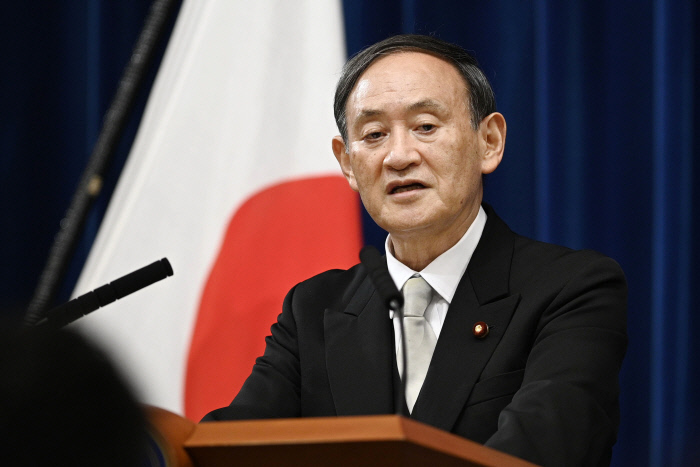
foreign policy goals will center around its alliance with the U.S. (Source: Yonhap News)
Ideological Abe Administration,
Practical Suga Administration
Q. Both the U.S. and Japan have had a change in leadership. What is the Suga administration’s foreign policy priority in this new year?
A. The Biden administration and the Suga administration are similar in character. Compared to their predecessors, whose governments were led by politicians, both Biden and Suga will place more emphasis on the elites. Moreover, their foreign policies will be led by experts, elites, and bureaucrats. Though the Suga administration will show respect for the Abe administration, I do not believe the new administration will follow its foreign policy footsteps. And because Japan and the U.S. will share a similar style of leadership, I believe the U.S.-Japan relations will head towards a stable state again.
However, it remains a question whether Japan will be able to follow in U.S. footsteps when the Biden administration begins to carry out policies against China over its concerns for human rights. In the environment, both Japan and the U.S. have pledged to become carbon neutral by 2050 to respond to climate change. In trade, there are likely to be points where our respective interests will not line up. Free trade, in particular, is facing strong resistance in the U.S. from both parties. Because Americans, in general, perceive free trade in a negative light, I believe our ideas will be quite different on trade. Given this, I do not believe the U.S. would make a swift return to the CPTPP. In short, though there will be some differences of detail, I expect the Japanese government to implement policies that will return the U.S.-Japan relations to the old normal.
Trump paved the way for discussions with North Korea;
Biden will leverage negotiations to deal with the North Korea problem
Q. How do you think the North Korea problem will play out in the future?
A. I do not see Biden adopting a Trump-style approach to the North Korea issue. However, it remains true that Trump had made significant progress by paving the way for talks with North Korea. The biggest reason why there has been no progress since the summit is because things played out differently than what Trump had expected due to intervention from neocons like John Bolton. And in my opinion, I believe North Korea had its hopes on Trump, not his administration per se.
The Biden administration will return to the old ways of the American foreign policy. This means negotiations—negotiations with experts in particular—since the Democrats have always been keen on such diplomatic engagement with North Korea. When Biden takes the helm of the country, he will examine Trump’s accomplishments and take what he needs. In other words, Trump’s vision to push for denuclearization while making progress on the inter-Korean reconciliation process may continue in the Biden era. Such a policy will favor the Moon administration. Ultimately, it will depend on who will lead the negotiations on behalf of the new administration. Unlike the Trump administration that offered a hawkish tone on one side and a dovish tone on the other, the Democrats will conduct the negotiations with more composure. I believe that we will arrive at a situation that North Korea can accept as well.
Japan’s Policy on North Korea: from ideological to practical approach
Q. How do you think Japan will handle the North Korea issue?
A. The Abe administration was ideological. This is reflected in the previous administration’s statements that they will “not forgive” North Korea for the abduction of Japanese citizens and South Korea for their actions against their complicated history. On the bright side, Prime Minister Suga is not an ideological politician. He is rather a realist, a pragmatist, and that is why I believe that he is already aware that ideologies will not solve issues dealing with the Korean Peninsula, South Korea, and North Korea. In this vein, if we were to suppose that the two Koreas make progress on the peace process, foster a mood for reconciliation, and spark a debate on normalizing Japan-North Korea relations, I believe the Japanese government would make practical decisions to resolve the Japan-North Korea abduction issue, amongst others. Piling sanctions on sanctions against North Korea to resolve the abduction issue will not get the job done. I have hopes that the Suga administration will make practical decisions in such circumstances.
Olympics, an opportunity for diplomacy?
Q. There are hopes that the Tokyo Olympics would facilitate progress on the North Korea problem.
A. While the Olympics is a global sports festival, it also holds great significance for the tourism industry. If the Tokyo Olympics are canceled, major hotels in Tokyo could become insolvent. As a result, Japan is likely to insist on hosting the Olympics. Another valuable aspect of the Olympics is diplomacy, and Prime Minister Suga, Secretary-General Toshihiro Nikai, and others could potentially leverage the occasion for diplomacy.
Last May, the Society of Security and Diplomatic Policy Studies (SSDP), which I head, proposed a nationwide PCR testing to isolate those who have tested positive and allow those with negative results to move around freely without restrictions. If we have visitors from other countries present a negative certificate for COVID-19, it may be possible for Japan to host the Olympics successfully.
Q. Chinese experts that we have spoken to have expressed their interests in reviving the six-party talks. What is Japan’s position on this matter?
A. I believe the six-party talks will be the concluding stage, the final place of agreement. Even if there is progress in the forms of U.S.-DPRK summits and expert negotiations, there will have to be separate efforts to lead the progress towards the six-party talks. Asking the U.S. president to solve the abduction issue as we have done so will not help Japan address its problems. If the six-party resumes, it could lead to the restoration of Japan-North Korea relations and raise other economic issues, so we cannot overlook the possibility of six-party talks when deal with North Korea.
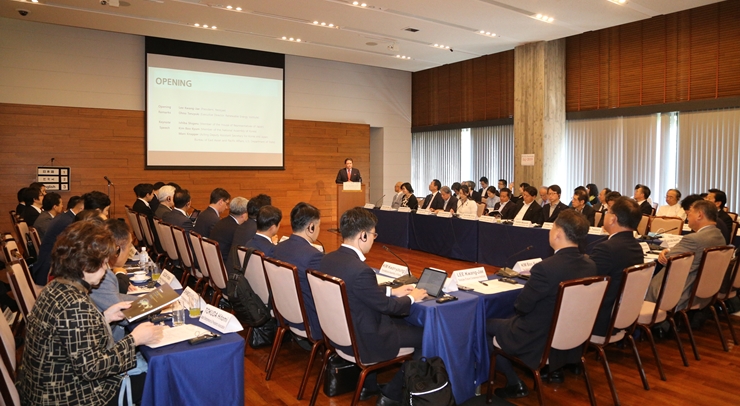
government leaders, and scholars to discuss South Korea-US-Japan cooperation.
Q. There were hopes that the South Korea-Japan relationship would improve with the inauguration of the Suga administration. However, there has been a report that the Japanese government did not take any actions when the members of the Korea-Japan Parliamentarians’ Union proposed issuing a joint statement last November. What do you think is needed to break the deadlock between South Korea and Japan?
A. I do not think the answer could come from the South Korean government nor the Japanese government. We will have to continue our discussions and dialogues on various levels and let time take its course. However, if South Korea proceeds to seize Japanese assets over wartime forced labor disputes, it could risk major conflict between the two countries, and it would be difficult to convince them to come to an agreement. Consequently, it may help to have both countries state their respective positions and outline the work to be undertaken.
For instance, South Korea could indicate its stance on the matter by stating, “The Korean government supports the activities and growth of Japanese businesses in South Korea. On the question of wartime forced labor, the government respects the court’s decision. Moreover, the government will take the necessary measures to resolve the subsequent violation of international agreement (Agreement on the Settlement of Problem Concerning Property and Claims and the Economic Cooperation between the Republic of Korea and Japan).” Likewise, the Japanese government could state “the Japanese government supports the continuation and growth of Japan-South Korea supply-chain. On export controls, the government will first assess South Korea’s responses and take appropriate measures.” Through these statements, both countries could demonstrate that they do not wish to escalate the situation to a dangerous level even if the Korean government carries out its plans to liquidate Japanese assets. It would, in a way, be a “damage control exercise.” Moving forward, we will have to manage our relationship to ensure that it does not deteriorate even further as we seek gradual improvements to our relations.
I believe that South Korea’s proposals in November were rejected because the new government did not have enough time to get settled in. It was too early for the Suga administration to change its stance and part with what Prime Minister Abe had built over the years. As I have mentioned, Prime Minister Suga is a realist, a pragmatist, so he should be looking for an opportunity to resolve the dispute.
Q. Japan’s neighbors have always had great interests in Japan’s security choices. Prime Minister Abe’s long-time goal of amending Japan’s constitution is still a work in progress, and the growing support for preemptive strike capacity has presented prospects of change to Japan’s exclusive defense policy. How should we interpret the changes that are occurring with Japan’s national security policy?
Cf. Exclusive Defense
Japanese military’s policy limits the use of Japan’s defense force to minimum levels (used only in the event of an attack).
A. Acquiring the military capacity to strike enemy bases is not against Japan’s constitution, and I also do not think that it means Japan would completely abandon its exclusive defense policy. However, since many questions have been raised about the initiative, it has been excluded from the new defense guideline. Nevertheless, there is a growing consensus that Japan has to develop first-strike capability to protect the country from the threat of North Korea’s missiles. There is no mistake that Japan’s defense policy is changing. Regardless, I believe that Japan will not revise its constitution in the near future. However, many legislations outlining Japan’s counter-attack measures have been passed lately, including the Legislation for Peace and Security of Japan. These are legislations that have been unimaginable in my days in public office. The government’s and the Japanese society’s perception of constitutional reform is changing. I do not think there is a need to rush things. Sooner or later, I believe Japan will move toward a constitutional revision.
Cf. Legislation for Peace and Security of Japan
With the Abe administration’s efforts, Japan’s constitution has been interpreted to allow a military for self-defense. The government drafted and passed 11 legislations on international peace activity to reflect these changes, which were implemented in March 2016.
The COVID-19 pandemic has exacerbated poverty and economic inequality;
We need the United Nations to take the initiative and facilitate international cooperation
Q. COVID-19 has raised questions about the viability of democracy. China’s response, in contrast, has been described as a success story. Under these circumstances, how do we protect the value of democracy within the international society?
A. China’s response to COVID-19 was successful, but it was largely thanks to its authoritarian system. However, this does not mean that every authoritarian regime managed to do the same. Of the democratic countries, Asian democracies are particularly finding more success in handling the coronavirus crisis, but it remains unclear whether they owe their success to their democratic system. If we look at the U.S., there are unimaginable things happening today. The American divide has grown to the point where GOP lawmakers are refusing to wear masks. Consequently, I do not think we should discredit democracy based on our successes and failures with COVID-19. Instead, we should learn from China, Taiwan, and other success stories to better address the situation.
Since the COVID-19 pandemic has exacerbated poverty and economic inequality, I believe it would be an excellent idea for South Korea and Japan to cooperate and support developing countries.
But more than that, we need the United Nations to step up and lead the collective effort to address global poverty and inequality. Japan’s foreign policy has traditionally been centered on the United Nations. I hope to see the U.N. take the initiative to support testing in poor nations by establishing funds and taking other actions. The U.N. Sustainable Development Goals (SDGs), in my opinion, was a successful political plea to a significant extent. It would be optimal if we could work together to achieve the U.N. SDGs. Over the years, the American government has shown a mixed stance on the U.N., and there were times under President Trump, where it had retreated entirely from the world stage. President-elect Joe Biden has promised to emphasize international organizations, so I believe that he will support and utilize U.N. activities. Japan, consequently, should be able to make more use of U.N. activities as well.
Japan’s Foreign Policy in 2021: International Cooperation
Q. With the thoughts you have shared today, what keyword would you use to describe Japan’s foreign policy in 2021?
A. I believe Japan will renew its commitments to international cooperation. In my personal opinion, Prime Minister Abe’s foreign policy was ideological and, in some ways, a foreign policy of sanctions. That was the case for South Korea-Japan relations and the North Korea issue. It did not work with China, however, since Japan, in some parts, was on the receiving end of the sanctions. I believe Japan will move from a foreign policy of sanctions to a foreign policy for cooperation in the future.
International cooperation in terms of the economy means free trade. Though there are discussions on Regional Comprehensive Economic Partnership (RCEP), South Korea-China-Japan FTA, and other free trade agreements, it remains critical that we bring China into the free trade system and facilitate their compliance with international norms to address long-standing problems such as technology transfer and state-owned companies.
It is also important to take a tough stance on China in some areas amid the U.S.-China conflict. Instead of the case-by-case sanctions of America, it is best desired that democracies work together to put diplomatic pressure on China. Instead of a single country demanding compliance, countries should form a united front against China. On the other hand, we should also note that blaming China for everything is not the right answer. What is important is that countries echo the same message to China, a country that has grown to become a military and economic powerhouse, to make sure it follows the rules and address pressing issues like digital transformation and privacy protection. At the same time, democratic countries should also discuss and set privacy protection standards. South Korea has been invested in the issues surrounding digital transformation, and though it is late, Japan has also started to take notice of them as well. Under these circumstances, I hope that we will be able to participate in the collective effort to address these issues together.
This text was originally published on Yeosijae’s Korean homepage on January 5, 2021.
< Copyright holder © TAEJAE FUTURE CONSENSUS INSTITUTE, Not available for redistribution >

